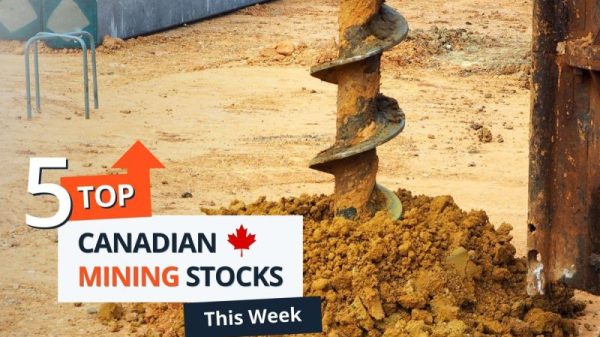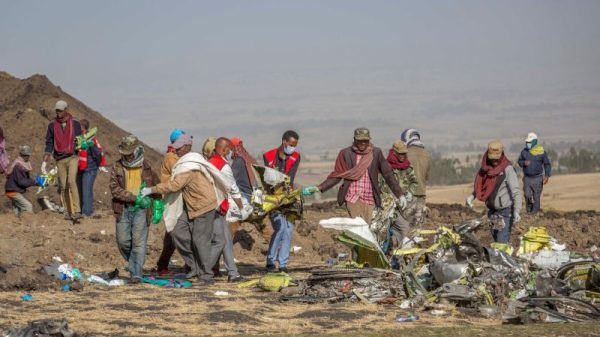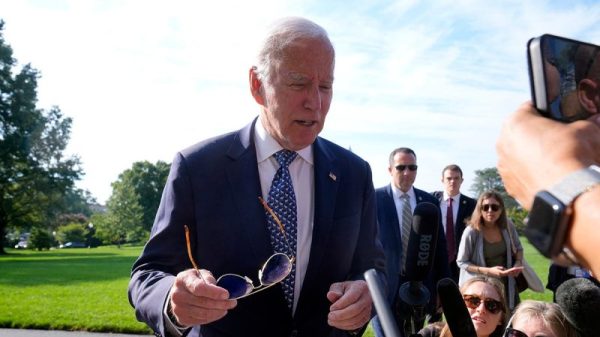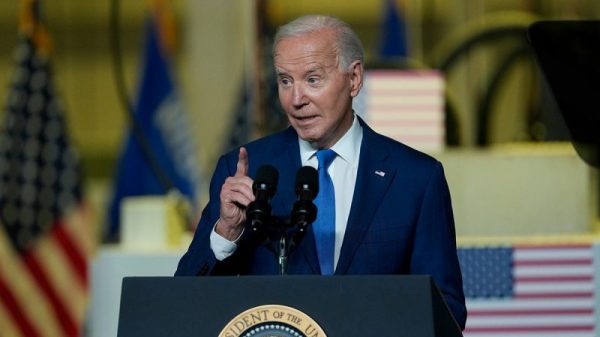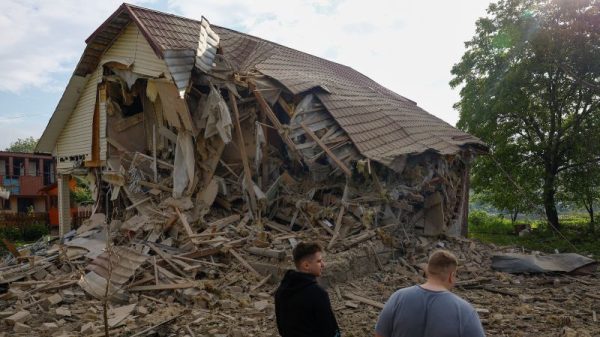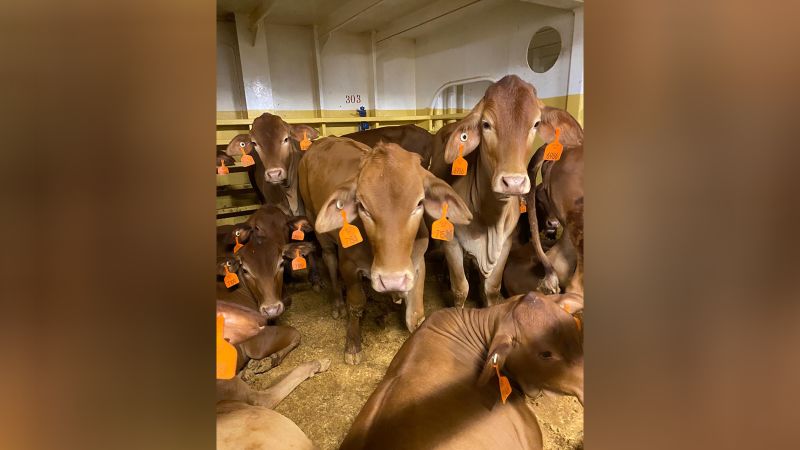Concern is mounting for thousands of sheep and cattle stranded off the coast of Australia after authorities ordered the Israeli-owned ship transporting the live cargo to turn around over fears it could be targeted by Houthi rebels in the Red Sea.
More than 16,000 animals are aboard the MV Bahijah anchored off Western Australia, where sweltering heat is adding to pressure on the Australian government to decide whether to re-export the live cargo or allow the vessel back to dock following more than three weeks at sea.
The Department of Agriculture, Fisheries and Forestry said on Wednesday it was considering a request from the exporter to offload some of the animals, before re-exporting the remainder.
Animal welfare advocates say they should be offloaded as a matter of urgency.
Australia’s live export trade has long been a point of friction between the industry and those who say it prioritizes revenue over animal welfare.
The Australian government has pledged to end the live export of sheep but has yet to give a timetable about when that will happen.
A long journey
The MV Bahijah left the port of Fremantle in Western Australia on January 5 for the Middle East, according to a statement from the Australian government.
A crisis has enveloped the region’s vital Red Sea shipping lane in recent weeks, as Yemen’s Iran-backed Houthi rebels attack commercial vessels in what they say is retaliation against Israel for its military campaign in Gaza.
Fifteen days into the ship’s voyage, a request to divert the vessel around Africa, as other ships have done to evade Houthi missiles and drones, was rejected.
“To ensure the health and welfare of the livestock on the MV Bahijah, the department directed the exporter that the consignment be immediately returned to Australia,” said a government statement on January 20.
Earlier this week, the government said it was working with the exporter on a plan, but by Wednesday, as summer temperatures rose, no decision had been made.
John Hassell, president of the Western Australian Farmers Federation (WAFarmers), which represents the state’s agricultural industry, said a decision should have been made days ago.
“I would have thought the department should have had its stuff sorted out well before it got here,” he said. “If the animals are in good nick, if there’s no disease if there’s plenty of space, we’ll (resupply the ship) and turn it away,” he said. “It should have been gone by now.”
“I’m comfortable that the sheep are in the shade sitting down, chewing their cud in the warm parts of the day and eating when it’s cooler, like they do on the farm,” Hassell said.
“Grave” concerns
However, Suzanne Fowler, Chief Science Officer with the Royal Society for the Prevention of Cruelty to Animals (RSPCA), said it’s a matter of urgency that all animals are offloaded.
“These animals have now been on board the ship for a minimum of 26 days. The temperature in Perth is starting to touch 40 degrees (102 Fahrenheit) today,” she said.
“The evidence tells us that the welfare of the animals is only going to get worse and worse over the coming days due to the amount of time they’ve spent on the ship. So, it’s very urgent and we couldn’t be more gravely concerned.”
Hassell, from WAFarmers, said offloading the animals would only cause them more stress.
If allowed to disembark, the animals would be governed by Australia’s strict biosecurity system, which is designed to assure importing countries that the country’s livestock is disease-free.
Mark Harvey-Sutton, CEO of the Australian Livestock Exporters’ Council, said any animals taken off the boat would be placed into quarantine before being re-exported or killed in an Australian abattoir.
“They would essentially be in quarantine indefinitely until a market was found for them. There’s no two weeks quarantine and you’re out sort of thing.”
Hassell said the only reason some animals would be offloaded would be to create space for the return journey.
“If the animals have gotten bigger and fatter on the trip over and require more space, then that’s why they’ll be offloaded,” he said.
The RSPCA has requested permission for an independent veterinarian to board the ship to assess the animals.
Fowler said while the livestock may not be showing signs of illness now, it’s only a matter of time.
“The stress of the animals is only going to yield in the coming days and that sense of fatigue where they can’t cope anymore, will only worsen,” she said. A lot of these diseases you won’t see until it’s too late.”




